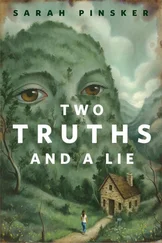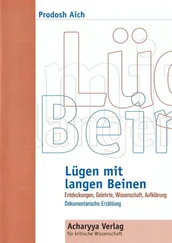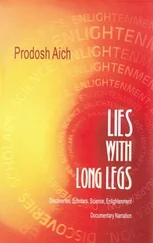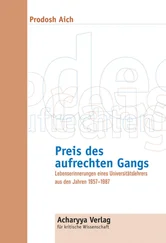We get to know from his first letter from Paris dated January 1, 1813, to his “ most honourable friend” Karl Joseph Hieronymus Windischmann(highlighted by us):
“...ever since I am here I am busy only with Arabic, because I was advised to acquire some skill in it before I go for other oriental languages. After gaining some skill in the Arabic I shall begin with Persian, so I hope after 14 days to be able to read light prose in this language; ...Only the Indian languages are not taught here, and nobody studies them. I shall be the only one in the summer, who is engaged with them. I think indeed to begin with Persian and Sanskrit at the same time during the summer. ...Soon I hope to send you some blossoms of Persian and Indian poets in translation, if only my fate be so favourable as to let me be in Paris long enough. Chézy will be able to afford me good services when I begin the Sanskrit. He is the only one, as I hear, who engages in this language here.”
We fail to understand why Franz Boppdoes not begin with Sanskrit immediately. The fact that he is advised to learn Arabic first reveals actually the ignorance prevailing in Paris in 1812/1813. Obviously it is assumed that Arabic and Sanskrit are related to each other. We remember it is handed down that Franz Boppguided August Wilhelm von Schlegelto the study of the Sanskrit language in Paris. How Franz Boppcould do it? He does let us know neither that had he known the Sanskrit language, nor that there were facilities to learn the Sanskrit language in Paris until the summer 1813. We must conclude that August Wilhelm von Schlegelnever had an opportunity to learn the Sanskrit language. At most, Franz Bopphad talked to him about “Sanskrit”, after others had talked to him. Therefore, Hermann Brockhauscould have learnt only what August Wilhelm von Schlegelknew from others about and on “Sanskrit”, but definitely not the Sanskrit language. Thus it is comprehensible that Friedrich Maximilian Müllerwent to Berlin to learn the Sanskrit language.
After this tiny aside, we get back to Franz Boppin Paris. The following episode is interesting and revealing. In his reply on March 14, 1813 Karl Joseph Hieronymus Windischmannhad announced to him:
“I am glad of being able to tell you something pleasant this time: Prof. Othmar Frank, author of “Das Licht vom Orient (The Light from the Orient) & the Commentatio de lingua persica (Comments on Persian) – a man full of deep knowledge wrote to me recently that he will be travelling to Paris on a grant of the Bavarian king to avail himself of the oriental treasures there. The thought came to me as a flash to get the two of you in touch, because you could be useful to each other to the good cause. I wrote therefore to him about you & he will look out for you in the library, where you could also introduce him to M. de Chezy.”
Here is the reaction of Franz Bopp (highlighted by us):
“Don’t you have any news from Frank? He told me he would try to go to England. I cannot assess Frank's knowledge in oriental languages; nevertheless, they do not seem to me to be profound. He did not disclose much in this regard and was anyway very secretive. He started to learn Sanskrit here with me approximately at the same time. He bought the printed Ramayana for the library in Munich on my repeated suggestion, and afterwards he concealed it from me. He also concealed from me that he had got manuscripts from the imperial library. He let me feel altogether a petty jealousy.”
We are at a complete loss for words. But not of our ability to reckon. On March 14, 1813, Othmar Frankwas announced. Franz Boppbegan to learn Sanskrit approximately simultaneously with him. This could have been in summer 1813 only. Franz Bopp’s next letter we cite to his academic mentor is dated April 29, 1814 is revealing (highlighted by us).
“...I have overcome the first hurdles of the language of Indian wisdom. I see now, to my delight, that I am able to master thoroughly the most beautiful, most important, presumably also one of the most difficult languages of the Orient without any help from others. ... I find that the similarity of Sanskrit with Latin and Greek is very large. This can be extended further than Schlegel ( Friedrich von ) has done. ...If we had had a great prince or would get one now, I could cherish the hope to get princely support to travel to India, if I succeeded with a smart translation.”
Franz Bopphas developed quite well in his 22 years of age. He claims in the same letter to have already read ‘Bhagawatgita, a small piece with plenty of deep philosophical content, translated by Wilkins into English’ . How did he do it? From summer 1813 to the End of April? Was it 10 or just 8 months? The main thing is that he didn’t disclose to his academic teacher who actually was his Sanskrit teacher. His academic teacher didn’t enquire either. Therefore, we too cannot find out who the teacher was.
The reply of his academic mentor of July 22, 1814 is full of congratulations for his “dear friend” . He would also like to get “the catalogue of the Indian manuscripts by Langlès and Hamilton”, so that he could “more exactly indicate” what his pupil “should look into more closely” . He informs him also that he would ask “first our Royal Bavarian Commissioner Freiherr von Aretin, and later the king himself” that Franz Boppshould be given the opportunity “first to go to England and then presumably also to India” . For some years Othmar Frankwas not to be mentioned. Remarkable academic morals! Is it any different nowadays? The quality of Franz Bopp’s mobbing appears to be remarkably modern.
We must rummage through the correspondence to put together all the bits of a puzzle to gain a clear picture of how Franz Boppturns into a Sanskrit scholar. Even before he starts learning the Sanskrit language he already knew: “The German language is so very much suitable to render faithfully the original Indian thoughts. And I want to contribute my utmost that it (Ramayana) can be read in German language. I am already now capable to translate the first part, available in English translation. The second part is said also to appear soon. ... Without a translation, even if it were a very free one, I am unable to translate any Indian manuscript yet, Chézy, either, hardly can, although he is engaged in that 6 years longer.” We note the date July 27, 1814. Accordingly, Antoine Léonard de Chézymust have begun to learn Sanskrit in 1808. But how and from whom? We shall find out in a while.
Franz Boppcomes to Paris in 1812 to learn Sanskrit from Antoine Léonard de Chézyonly. Until summer 1813, he doesn’t learn any other language but Arabic. Why? We remember also, the handed-down information in the European scholarly literature is just false that Franz Boppguided August Wilhelm von Schlegelin Paris to learn Sanskrit. Uncorrected yet. What does it mean? Does it tell any story? We are too simple to understand these inconstancies.
In July 1814 Franz Boppreports to his academic mentor Windischmannalso that he cannot learn Sanskrit from Antoine Léonard de Chézy. But why not? Didn’t he know Sanskrit? Instead of indicating a reason, Franz Boppmaintains that he doesn’t require any teacher for learning the Sanskrit language. Since (highlighted by us):
Читать дальше












